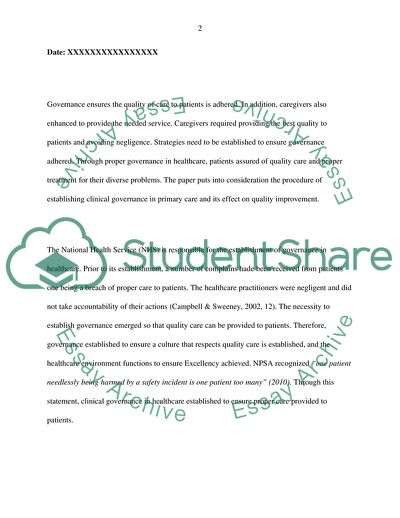Cite this document
(Assess critically the impact of governance processes on the quality of Essay, n.d.)
Assess critically the impact of governance processes on the quality of Essay. https://studentshare.org/medical-science/1772683-the-impact-of-governance-processes-on-the-quality-of-care-and-the-management-of-risks
Assess critically the impact of governance processes on the quality of Essay. https://studentshare.org/medical-science/1772683-the-impact-of-governance-processes-on-the-quality-of-care-and-the-management-of-risks
(Assess Critically the Impact of Governance Processes on the Quality of Essay)
Assess Critically the Impact of Governance Processes on the Quality of Essay. https://studentshare.org/medical-science/1772683-the-impact-of-governance-processes-on-the-quality-of-care-and-the-management-of-risks.
Assess Critically the Impact of Governance Processes on the Quality of Essay. https://studentshare.org/medical-science/1772683-the-impact-of-governance-processes-on-the-quality-of-care-and-the-management-of-risks.
“Assess Critically the Impact of Governance Processes on the Quality of Essay”. https://studentshare.org/medical-science/1772683-the-impact-of-governance-processes-on-the-quality-of-care-and-the-management-of-risks.


